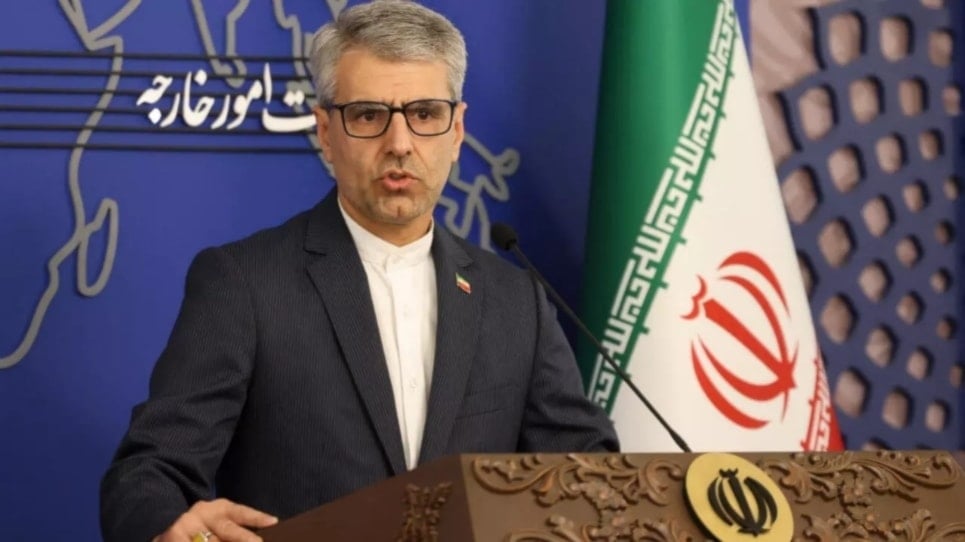Iran ties NPT commitment to uranium enrichment amid JCPOA strains
Iran says its NPT membership depends on full treaty benefits, slams Western efforts to sideline uranium rights, and urges restraint in the South Caucasus.
-

Iranian Foreign Ministry spokesperson Esmaeil Baghaei speaks at a press conference in Tehran, October 28, 2024 (AFP)
Iran has reiterated that its continued commitment to the Non-Proliferation Treaty (NPT) hinges on its ability to fully exercise its rights under the pact, including uranium enrichment, drawing a firm line amid renewed tensions over the 2015 nuclear deal and sanctions relief.
Foreign Ministry Spokesperson Esmaeil Baghaei, speaking during a weekly press briefing in Tehran, underscored that Iran will remain within the NPT framework only if it receives the full benefits guaranteed by the treaty.
“Our membership in the NPT is conditional on enjoying our rights under it, particularly the right to enrich [uranium],” Baghaei stated.
The remarks come on the heels of a fresh round of indirect negotiations in Istanbul between Iran and the three European signatories to the JCPOA, France, Germany, and the United Kingdom. While the talks reportedly focused on sanctions relief and nuclear commitments, Baghaei criticized attempts by some Western participants to introduce extraneous issues.
“Every negotiation has two sides. When Western countries bring in unrelated topics, they only undermine coherence in their own positions,” he said, describing the talks as ongoing but narrowly focused.
Snapback warning and Resolution 2231
Baghaei also pushed back on reports suggesting that European powers are considering triggering the so-called “snapback mechanism”, a provision in UN Security Council Resolution 2231 that could reimpose UN sanctions on Iran.
He emphasized that such a move would not only be legally baseless but would also challenge the credibility of the very resolution the Europeans claim to uphold.
“We have made it clear that the European parties lack the legal standing to activate the snapback mechanism. Resorting to it would be ineffective and would only escalate the situation,” Baghaei warned. “If it’s triggered, Iran will respond accordingly, and we hope they understand the risks of further complicating the situation.”
No talks with the US for now
On the question of direct dialogue with the United States, Baghaei was unequivocal as he said, “There are still no plans to negotiate with Washington.”
Despite months of backchannel messaging and speculation about potential de-escalation, Tehran’s stance remains unchanged in the absence of concrete moves from the Trump administration to lift sanctions.
Addressing regional concerns, Baghaei reaffirmed Iran’s consistent position on the South Caucasus, warning against any attempts to redraw borders in the wake of ongoing tensions between Armenia and Azerbaijan.
“Our stance has not changed. We do not accept any alteration of internationally recognized borders,” he said.
He called on both Yerevan and Baku to prioritize peace, stressing the urgency of reaching a comprehensive peace agreement to avoid a renewed spiral of violence. “Prolonging the peace process will only fuel further instability,” he added.
Read next: Iran reaffirms to E3 uranium enrichment as non-negotiable in Istanbul

 3 Min Read
3 Min Read










